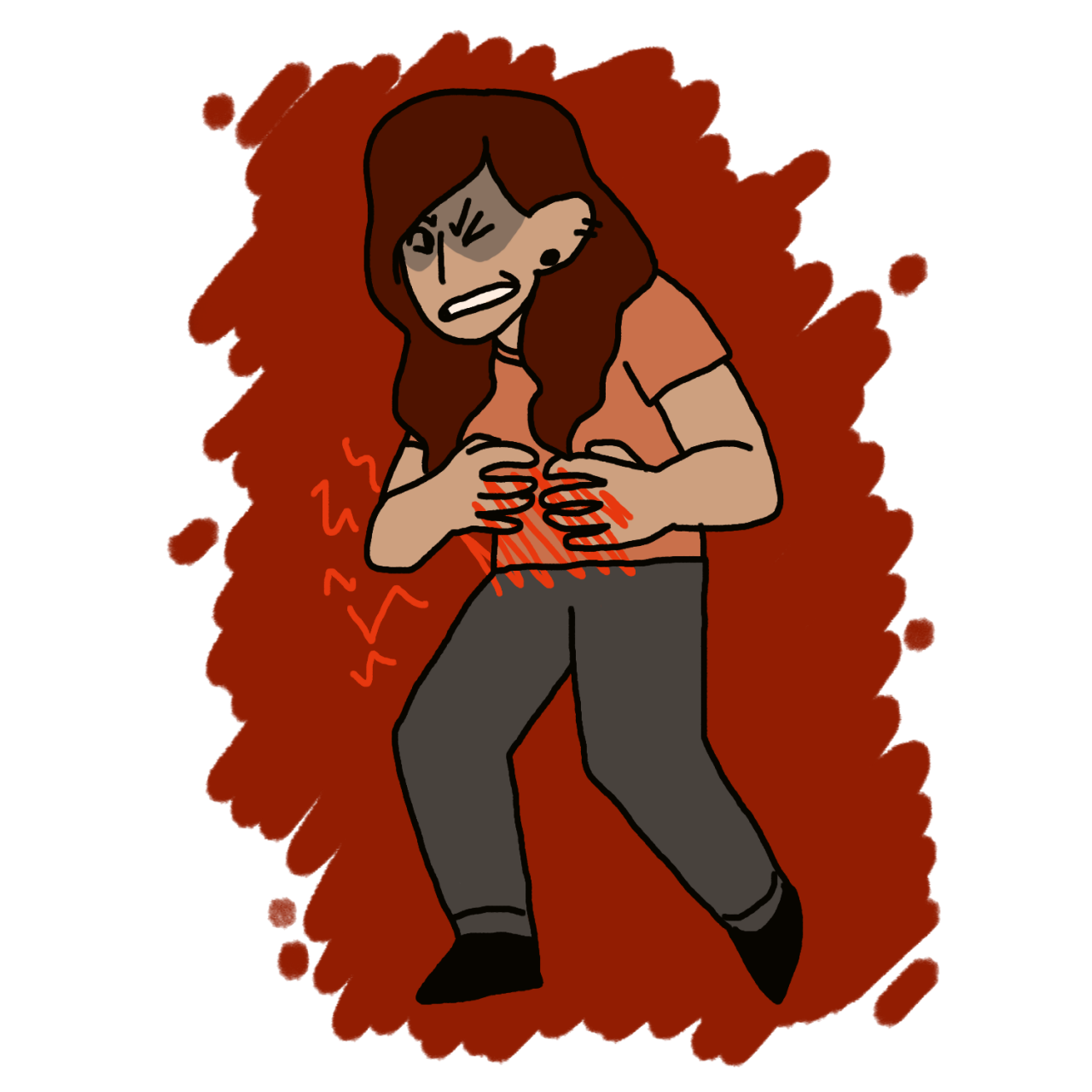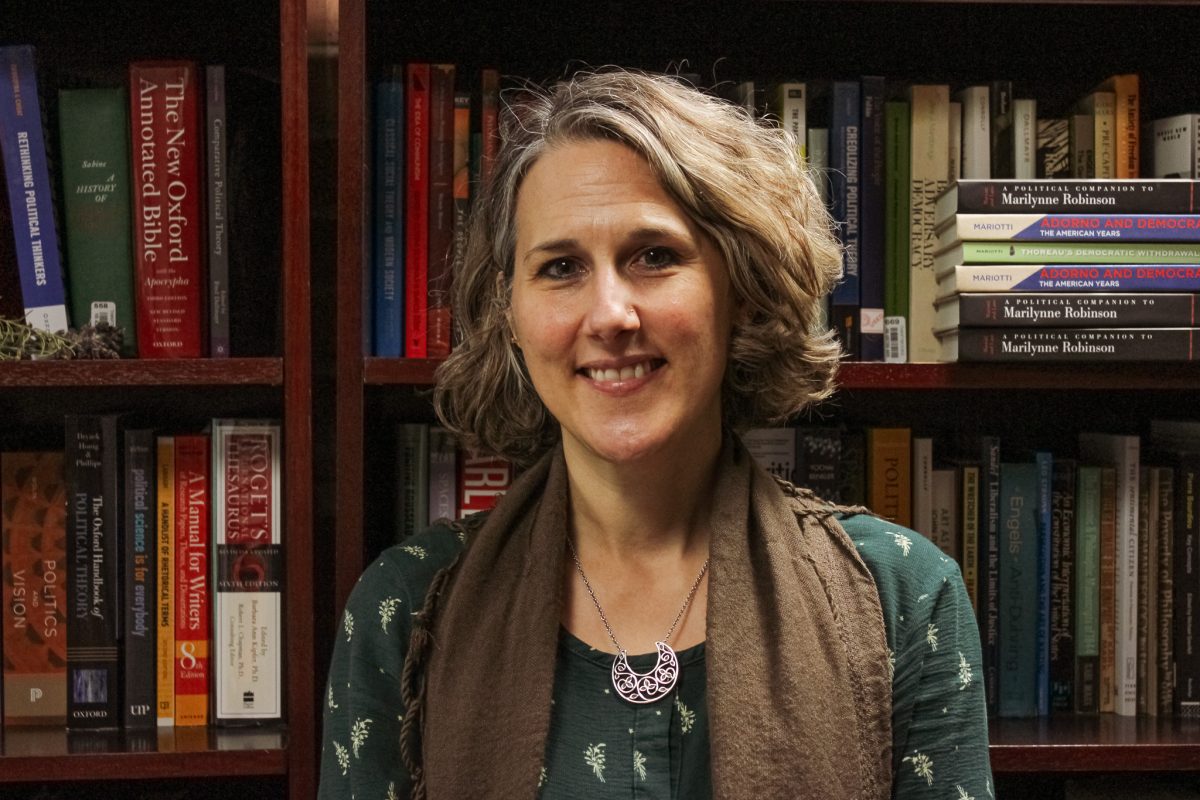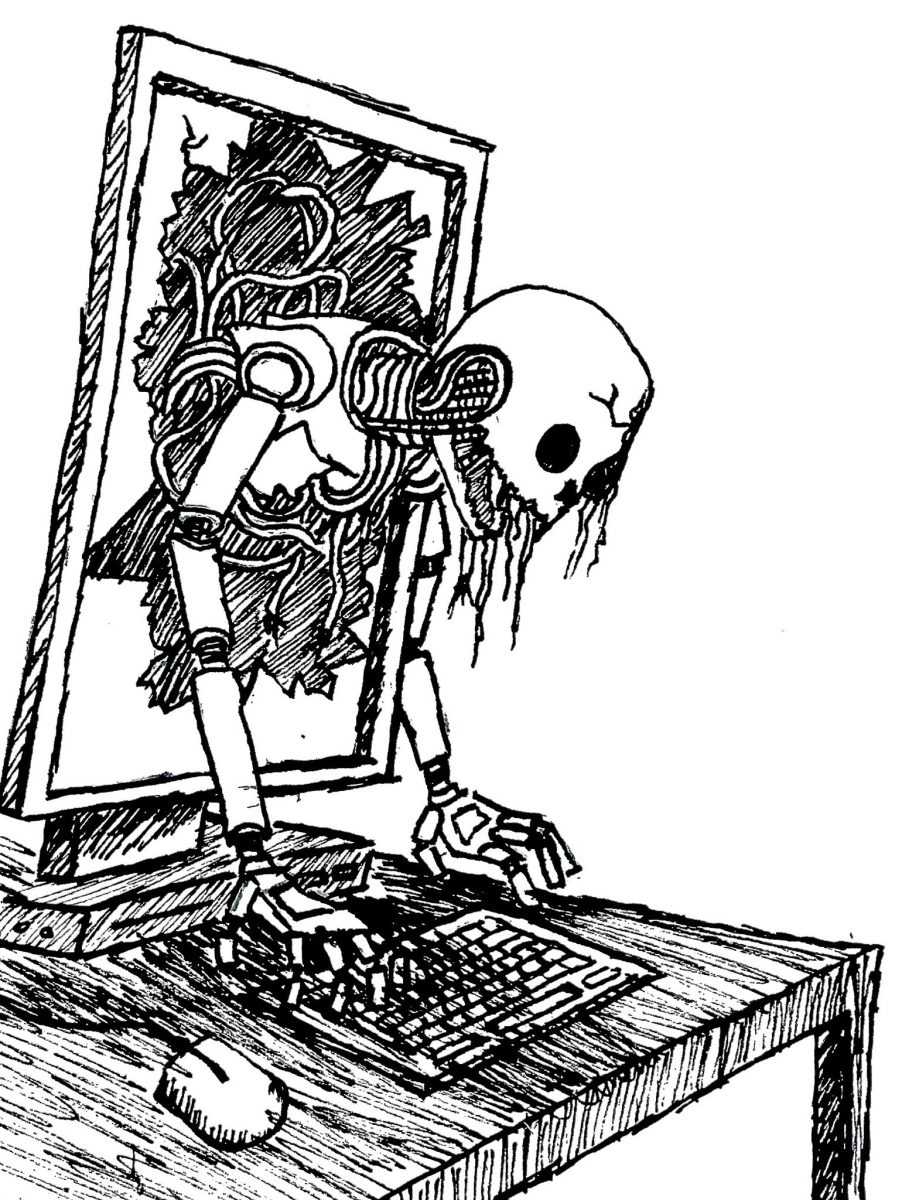Illustration by Ren Rader
When I came to Trinity, I expected to go out every weekend and bond with friends after class. In reality, after classes I was so drained that I had to spend my evenings sleeping, despite the fact that I was getting more than eight hours of sleep every night. I figured that the fatigue was just my body adjusting to a dramatic life change. But when it was months later and I slept through rush season, club meetings and class, it was apparent that this fatigue was not my body adjusting to college life. Soon after, I felt a constant stabbing pain in my lower abdomen. Even when I wasn’t on my period, I felt like I was. In class, not only could I not keep my eyes open anymore, but I was also in constant pain.
I googled my symptoms again and again. WebMD showed me everything from a UTI to an STD to cancer to endometriosis. The list of symptoms for endometriosis were a vast range, from painful periods to infertility. I decided to contact my doctor after eight months of fatigue and pain. I was ready to finally receive some answers and alleviate my suffering.
My doctor performed a pelvic exam during which multiple times I exclaimed from pain only to be dismissed. A pelvic exam should not be painful, although discomfort is normal — but I was sent away with antibiotics and my doctor telling me I only had an infection that should be gone within the week. I hate to report back that none of my symptoms went away: by the summer my pain was excruciating. Through online research, I found a community of women on YouTube discussing their endometriosis. They discussed what symptoms they experienced, how multiple doctors dismissed their pain and how long it took to get diagnosed. These videos gave me the language that I needed to use with my doctor and demand that my pain be taken seriously. I returned to my doctor a third time only for her to write me off and tell me to speak with my general practitioner. Luckily, my general practitioner referred me to a surgeon who specializes in pelvic pain.
There with the surgeon, I learned all the pain I was experiencing was in fact not normal. At this point I had constant pelvic pain, stabbing in my abdomen, aching and radiating pain down my thighs, backaches, pain during sex and much more. My new doctor told me that it could be endometriosis, but only surgery would be able to confirm that.
Endometriosis is a chronic illness where the cells that line the inside of the uterus begin to grow elsewhere, including in the Fallopian tubes, intestines, bladder and rectum. These cells shed as they do in the uterus, causing a build-up of blood that has nowhere to go, which results in the formation of cysts. One in ten women have endometriosis, but on average, a woman will have to wait about seven years to be diagnosed. Why does an illness that is so common, and excruciating, take so long to diagnose?
Firstly, the symptoms of endometriosis are very similar to those of other illnesses. People might be experiencing pain for a plethora of reasons. But something that endo sufferers know all too well is how doctors dismiss our pain. We are primed from a young age to accept that our periods will be horrible, and there is nothing that we can do about it. No one told me in sex ed that extreme pain during your period isn’t healthy or to be expected. On a more personal note, no one told me that painful sex wasn’t normal either. I was baffled every time I confided in a friend that sex was painful and they told me they never experienced that. So, as a friend, I am here to tell you that if having sex is painful, you are not alone.
There needs to be more conversations surrounding endometriosis. People with uteruses lack the tools to talk about what is wrong, because we are told our pain is normal and our pleasure is unimportant. Feeling like we don’t have power over our bodies takes an emotional toll. It takes emotional endurance to go from doctor to doctor explaining every detail of your pain, only for it to be delegitimized. Arm yourself by learning to advocate for yourself in the doctor’s office. Bring a folder of your medical records as proof of what other doctors have tested for. Demand that your pain be taken seriously. Just because we are taught that periods are painful does not mean we have to live in extreme pain or discomfort. If something feels wrong, listen to your gut. Literally.






